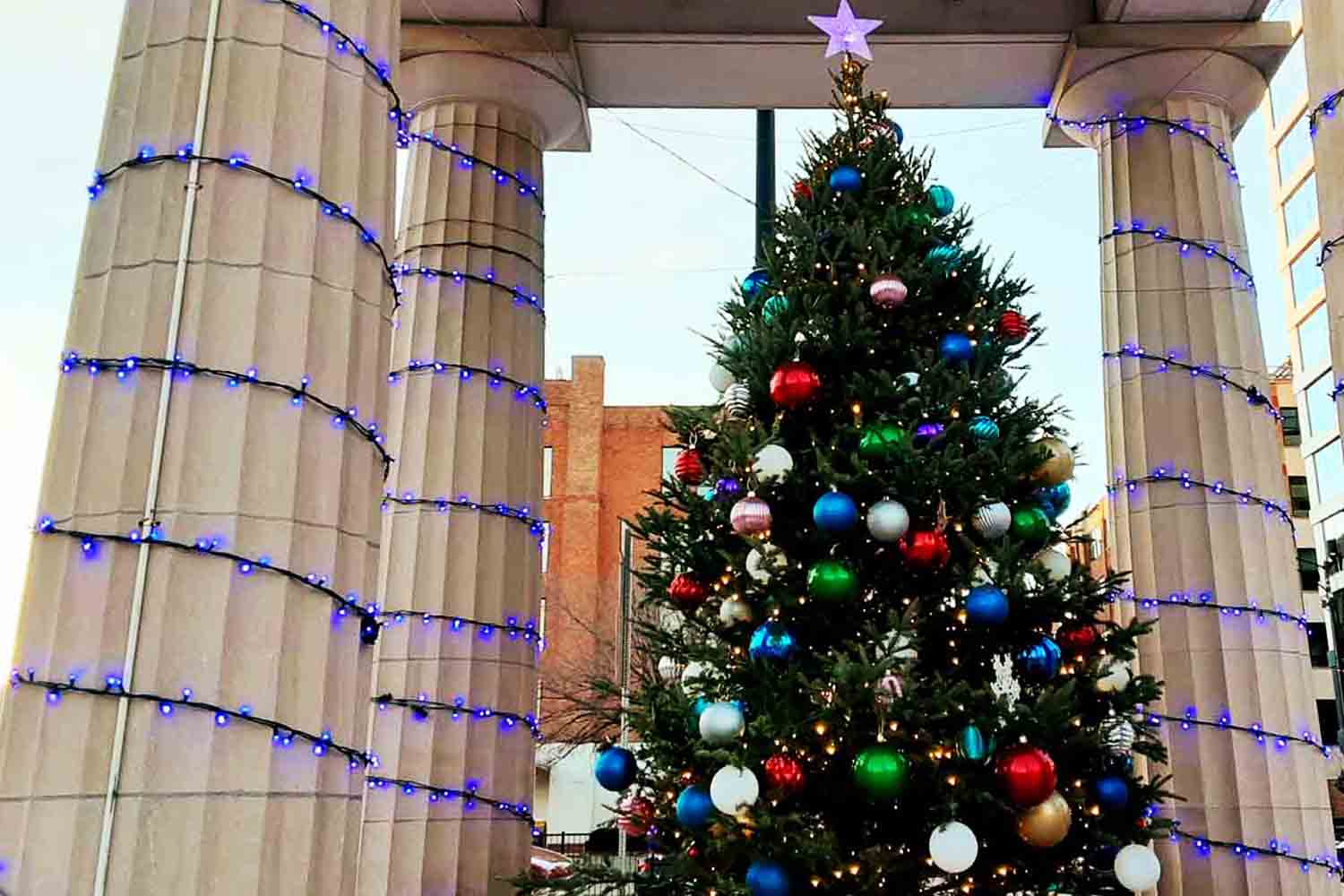Beginning on Christmas Eve and concluding with the “Great Blessing of Water” on Epiphany (January 6th), the formal Christmas season in Greece lasts for a full 14 days.
The Greek Orthodox Church observes Christmas on December 25th due to its adoption of the Gregorian calendar. However, once December rolls around, the celebrations begin in full swing: houses are decked out in holiday garb, and baked goods’ aromas fill the air.
Melodic lullabies sung by mothers, stories told by grandfathers, Christmas songs, Cretan serenades, and ancient dances are a few examples.
Our lives have always been intertwined with ancient Greek rituals and traditions that date back centuries. Naturally, the same holds for Christmas.
Let’s learn what makes Christmas in Greece unique by exploring the various Greek Christmas traditions.
Some Traditional Greek Holiday Practices
On December 25th, Greeks celebrate Christmas with their loved ones (Christougena). Several time-honoured Greek customs associated with the Christmas season have been carried on from generation to generation.
Greek Christmas songs, Saint Basil’s cake, pomegranates, and the “kalikatzaroi” custom are some of the most well-known traditions. Not to mention all the traditional Greek Christmas delicacies that every family bakes.
The Christmas Boat Decoration Custom
Since Greece is a maritime nation, the Christmas boat, or “Karavaki,” has come to represent the holiday season. Only in coastal and island communities has this ancient Greek Christmas custom been kept alive.
In 1833, Otto, a Bavarian immigrant to Greece, decked his palace with the country’s first Christmas tree. After 1950, many households also began decorating Christmas trees in place of the Greek Christmas tradition of decorating a boat for a holiday.
These days, the Christmas tree is the primary focus of Christmas decorations. However, it is often displayed with more traditional “karavaki” decorations.
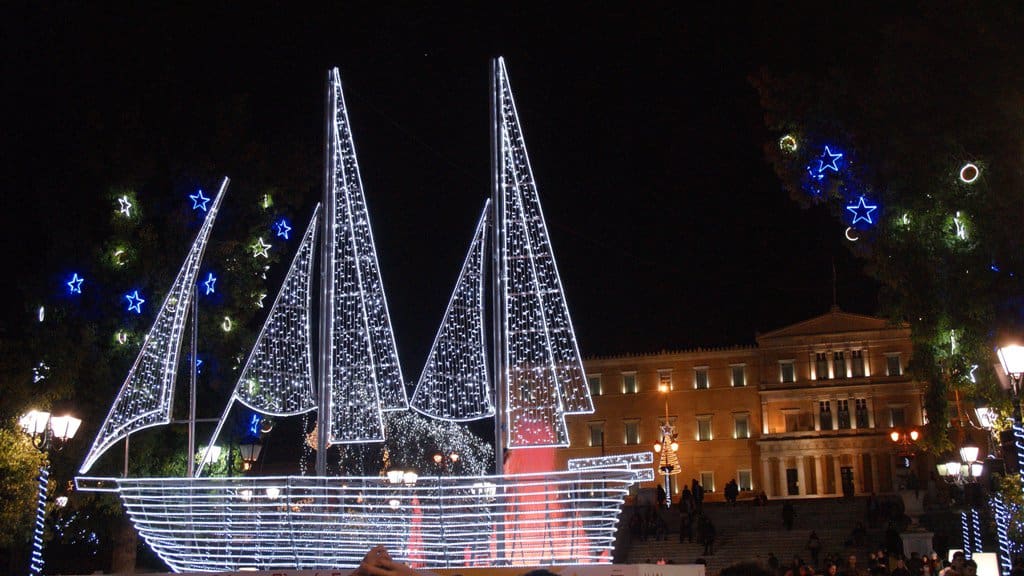
image: greekcitytimes.com/2018/12/22/traditional-symbol-behind-christmas-boats-in-greece/
Traditional Greek Christmas Carols
Kalanda, or Greek Christmas carols, are performed on the three days dedicated to the tradition. Each of the mornings of December 24th, December 31st, and January 6th (the eve of Christmas, New Year’s, and the Epiphany, respectively) (January 5th).
These days, it’s customary for groups of kids to visit neighbors’ homes and sing Christmas carols. They go from house to house singing Christmas carols while playing metal triangles and, occasionally, drums, for which the homeowners generously provide little donations. Greek Christmas songs typically contain well-wishes for the family’s future success and happiness.
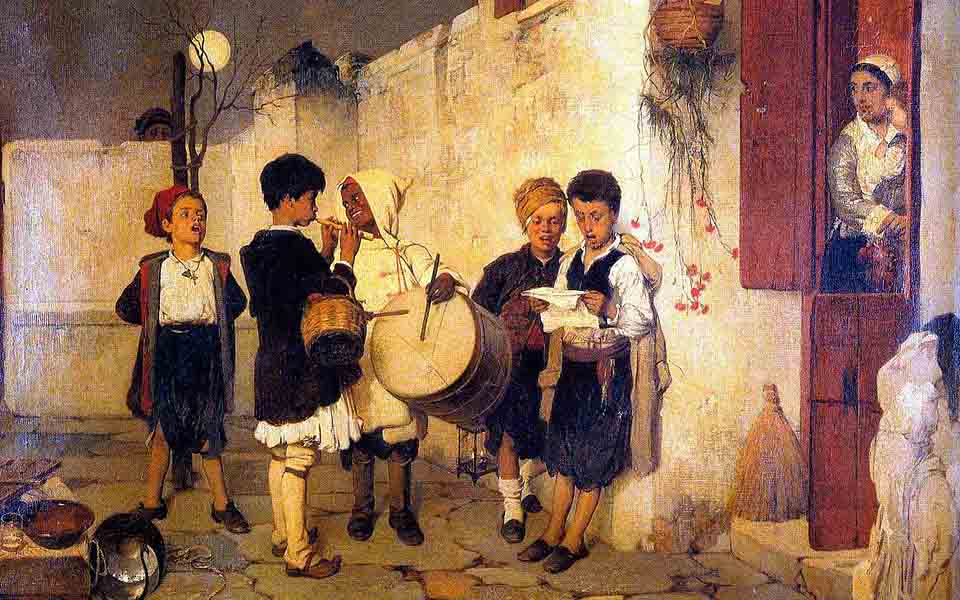
image: greece-is.com/christmas-carols-greek-style/
Saint Basil’s cake (Vasilopita)
Traditionally, Greeks honor the life of Saint Basil by eating a cake or bread called Saint Basil’s cake (vasilopita) at midnight on New Year’s Eve. According to Greek Christmas mythology, Santa Claus is Saint Basil, or “Agios Vasilis.”
After baking, a penny is hidden in the cake’s base, and whoever discovers it when it is sliced will have good fortune during the coming year.
Once the clock strikes midnight on New Year’s Eve, every Greek home participates in a traditional Christmas ritual: cutting the cake into pieces.
Christ gets the first slice, Mary gets the second, and the rest goes toward the home. The remaining cake is then divided among the family members in descending order of age.
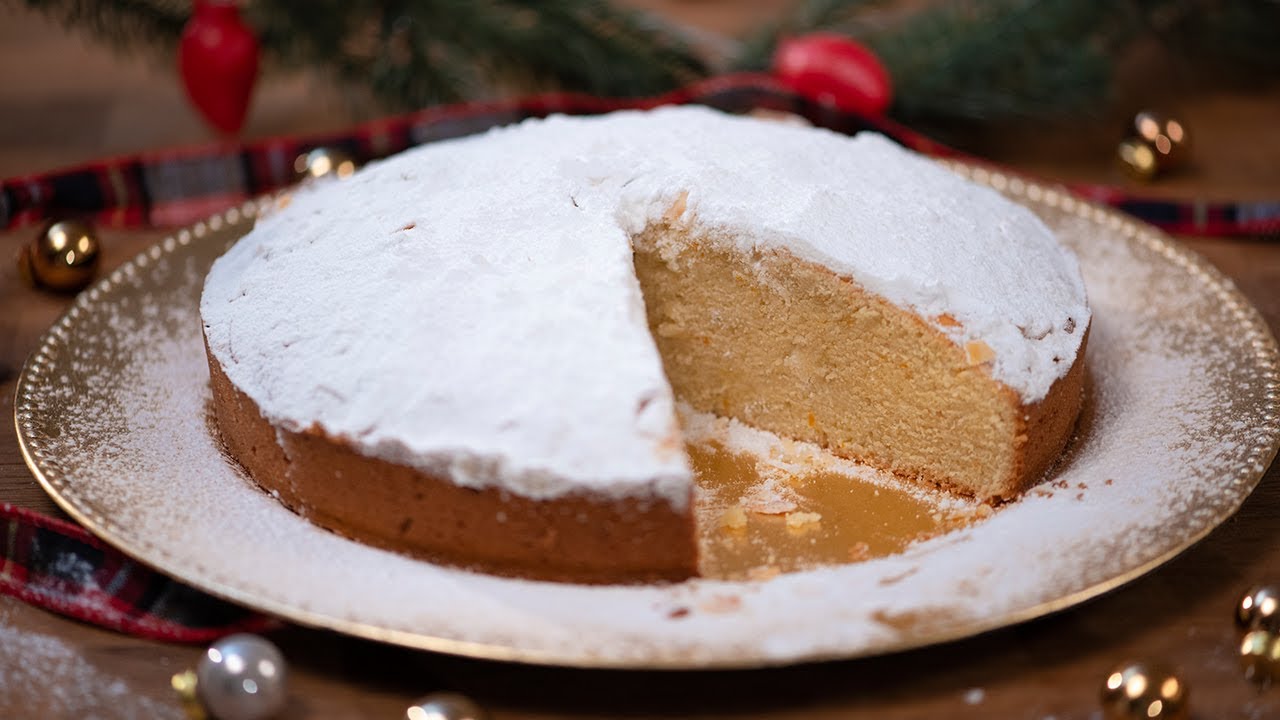
image: youtube.com/watch?v=9p7KN8HYhEQ
Breaking The Pomegranate Tradition
The pomegranate symbolized good fortune, fertility, and prosperity in ancient Greece and Greek mythology. Pomegranates would be used as Christmas decorations and hung on doorways during the holiday season.
At midnight on New Year’s Eve, the head of the home traditionally stands outside the front door and smashes a pomegranate with his fist. When the fruit’s seeds fall to the floor, it signifies good fortune and health for the household.
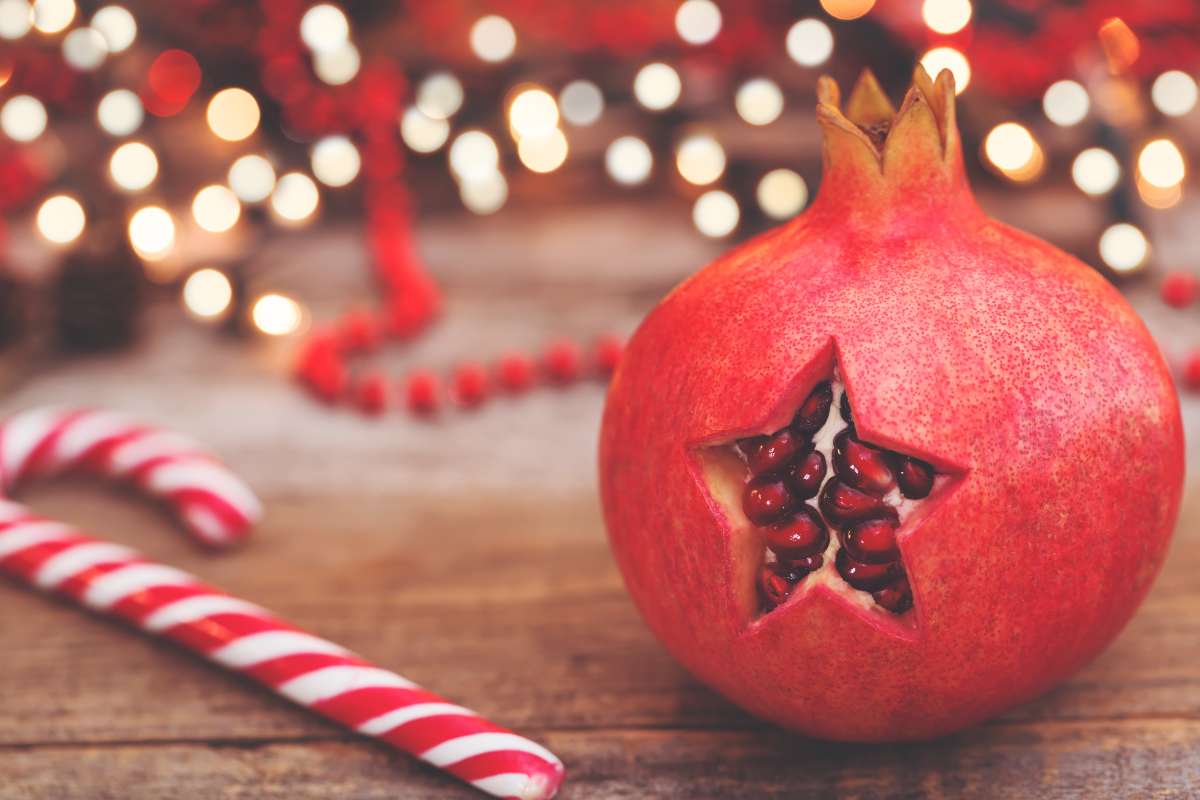
image: thegreekfood.com/blog/christmas-customs-breaking-the-pomegranate/
Saint Basil (Agios Vassileios) – The Greek Santa Claus
Holy Basil is the Greek equivalent of Santa Claus (Agios Vassileios). Per Greek Christmas mythology, Saint Basil, an elderly man with a white beard and red robe, is the patron saint of gift-giving.
On January 1st, Saint Basil’s feast day, Greeks traditionally give each other presents. On Christmas Eve, “Agios Vasilis” visits every house with gifts for the kids.
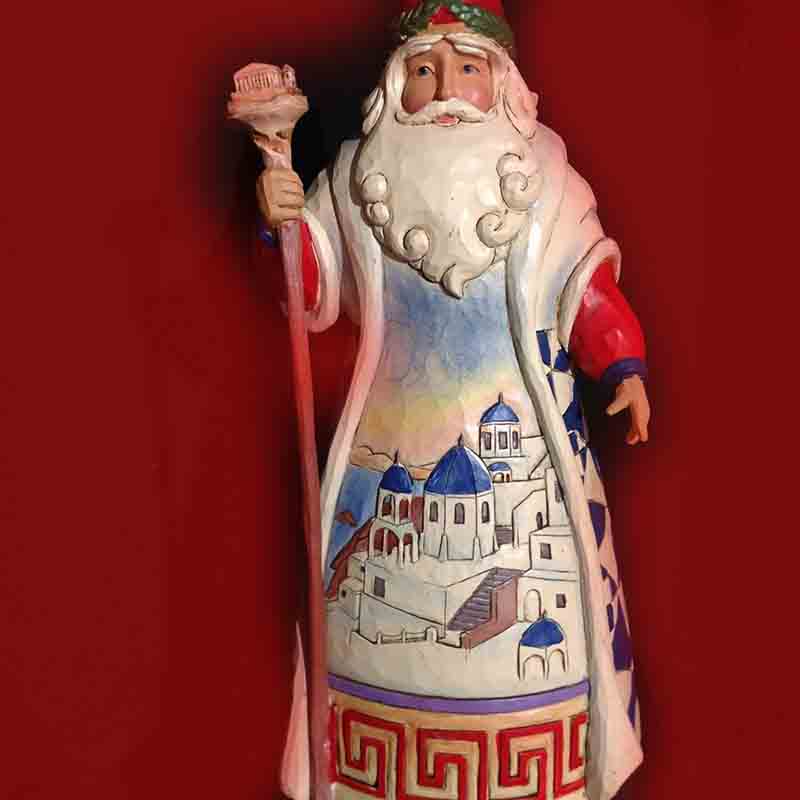
image: christmastyme.ca/jim-shore-greek-santa.html
Greek Christmas Pastries
Traditional Greek Christmas desserts include vasilopita, melomakarona, kourabiedes, and diples.
In contrast to the Byzantine roots of Melomakarona (Greek honey cookies), the Ottomans are responsible for creating kourabiedes.
Every Greek family prepares and serves these two Christmas desserts on Christmas Day and throughout the holiday season. Syrupy Peloponnesian pastries called “diples” are a holiday staple in Greece.

image: greekreporter.com/2017/12/21/10-traditional-greek-christmas-sweets-to-fall-in-love-with/
Conclusion
Greece’s customs are rich in history, community, and cuisine. A taste of Greek Christmas customs is highly recommended if you are looking for a different experience this festive season.
**************************************************************


